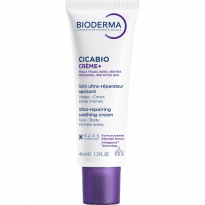This includes:
The skin microbiota competes for space and nutrients, using defence mechanisms to resist colonisation by harmful microorganisms. By disrupting the spread and toxicity of pathogens, it helps prevent infections - especially in weakened or damaged skin.
- Regulating immune responses and inflammation:
The microbiome interacts with the skin’s immune system to help regulate and suppress excessive inflammation, creating a more stable environment for healing.
- Restoring the skin barrier:
As new tissue forms, the microbiome supports the regeneration of the skin barrier. It plays a role in the production of ceramides, essential for hydration, and works with the epidermis to secrete lipids and acids that form a protective, impermeable layer. This naturally acidic environment helps prevent dryness, lowers infection risk, promotes tissue reconstruction, supports wound closure, and helps maintain healthy collagen levels.









